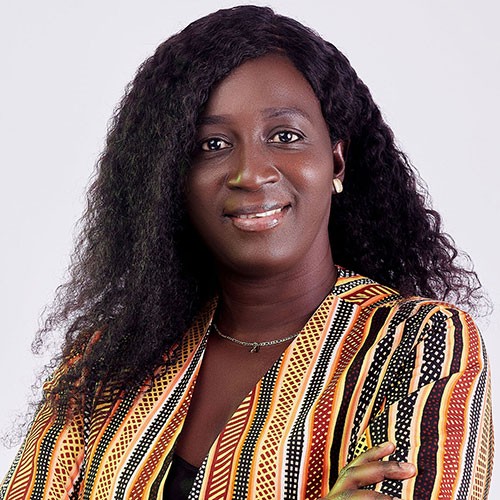
Corruption is a huge problem, not only in Africa but globally. It keeps communities trapped in poverty by depriving them of essential public services and infrastructure, driving up project costs, eroding trust in public institutions, damaging investor confidence and generally slowing down economic growth. Such is the scale of the problem that the United Nations and World Economic Forum have estimated that the cost of corruption is at least 5% of global GDP.
In Africa alone, the cost of corruption and illegal money activities is estimated to be a staggering US$140bn a year. That’s why it’s encouraging that several Sub-Saharan African countries have made ‘remarkable progress’ in the fight against corruption, according to the latest Corruption Perceptions Index published by anti-corruption coalition Transparency International.
Bright lights
In its Africa commentary, Transparency International singled out Seychelles, Côte d’Ivoire and Tanzania for their ‘noteworthy efforts’ to combat corruption and enhance transparency in recent years. With a score of 72 out of 100 – higher than France, Japan and the UK, but some way below Denmark, which tops the ranking with a score of 90 – Seychelles is Africa’s top performer on the Corruption Perceptions Index and has improved its overall performance by 20 points since 2012.
Seychelles has engaged with European countries around tax transparency
The country has actively prosecuted some high-profile corruption cases, including a case centred on US$50m in missing foreign aid – a gift from the United Arab Emirates. The case involves prominent Seychellois citizens, including the former First Lady, a former government minister and a former army officer.
Additionally, Seychelles has made progress towards greater tax transparency. In 2020, it enacted beneficial ownership legislation providing for an up-to-date register of beneficial owners, as well as a centralised beneficial ownership database maintained by the EU.
The country has also engaged with individual European countries around tax transparency issues and the exchange of information for tax purposes. Its efforts to be more transparent have resulted in Seychelles being removed from the EU blacklist of non-cooperative jurisdictions for tax purposes. It is now on the EU’s grey list of countries that do not yet comply with all international tax standards but have committed to adopting good tax governance.
Multiple reforms
A string of legal and institutional reforms has helped Côte d’Ivoire to improve its index score by 10 points to 45 points since 2019. These reforms have been implemented by the administration of President Alassane Ouattara, who has been in power since 2010.
Ordinance number 2013-660, passed in 2013, aims to prevent and fight bribery. It specifically defines foreign bribery as a crime and prohibits several other activities, including corruption of public officials, abuse of public function, embezzlement and misappropriation. Côte d’Ivoire has also ratified the United Nations Convention Against Corruption, as well as the African Union Convention on Preventing and Combating Corruption.
Non-profit warns corruption and bribery still endemic in Côte d’Ivoire
Côte d’Ivoire’s main anti-corruption agency, the High Authority for Good Governance, is responsible for implementing the country’s national strategy for anti-corruption and for coordinating and supervising prevention policies. Operational since 2014, it also advises organisations on ethics and educates the public on the consequences of corruption.
But while Côte d’Ivoire has made progress on corruption, enforcement of anti-corruption measures could be more effective, according to Transparency International. Meanwhile, US non-profit advocacy organisation Freedom House warns that corruption and bribery remain endemic in the country, particularly affecting the judiciary, police and government contracting operations.
Consequences
Another significant improver on the Corruption Perceptions Index is Tanzania, which has increased its index score by 10 points to 41 points since 2014. Transparency International attributes the improvement to corrupt officials being made to face the consequences of their actions. In 2023, for example, Professor Kennedy Gastorn, a high-profile lawyer, was fired from his role as Tanzania’s permanent representative to the United Nations and ambassador to the US over an undisclosed corruption scandal.
Sub-Saharan Africa registers the lowest average index score
Tanzania’s anti-corruption agency, the Prevention and Combating of Corruption Bureau, has also been proactively investigating cases of corruption. In 2024, it revealed that it had uncovered 21 cases of ‘grand corruption’ that involved embezzlement of public funds.
One of these cases was the failure of the Dar es Salaam City Council to deposit with a bank Sh8.9bn (approximately US$3.3m) in funds collected from a point-of-sale cash collection machine. The country has established the Economic, Corruption and Organized Crime Court specifically to handle the prosecution of crimes in these areas.
As well as showcasing these improvers, Transparency International highlights three other African countries as regional top scorers on its index. These are Cabo Verde (scoring 62) and Botswana and Rwanda (both scoring 57).
Climate threat
While it is encouraging to see progress against corruption in Africa, the reality is that much more still needs to be done. The Sub-Saharan African region continues to register the lowest average score on the Corruption Perceptions Index, at just 33 out of 100, with 90% of countries in the region scoring below 50. Unless concrete action is taken against corruption, African countries will not grow as fast as they could, and their communities will not prosper.
Corruption undermines efforts to mitigate the effects of global warming
The need to combat corruption is more urgent than ever given the existential threat of climate change. According to the United Nations, Africa is more vulnerable to global warming than any other region despite its negligible contribution to the problem. In fact, a report by the World Meteorological Organisation claims that African countries are already losing up to 5% of their GDP every year due to climate change.
Transparency International found that corruption – including misappropriation, theft and misallocation of funds intended as climate finance – is undermining African countries’ efforts to reduce emissions and mitigate the effects of global warming.
It therefore demands the strengthening of anti-corruption systems as ‘a critical investment to ensure Africa’s people can withstand climate change and secure the socio-economic opportunities needed to build a better future’. Let’s hope this call to action galvanises African countries to act on corruption and score higher on next year’s Corruption Perceptions Index.



